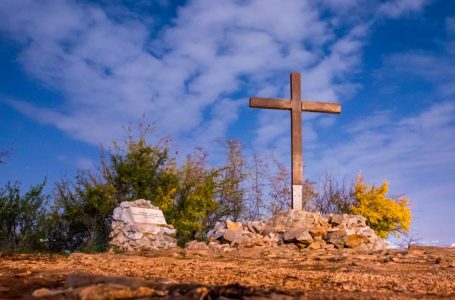
But I say, walk by the Spirit, and do not gratify the desires of the flesh. For the desires of the flesh are against the Spirit, and the desires of the Spirit are against the flesh; for these are opposed to each other, to prevent you from doing what you would. But if you are led by the Spirit you are not under the law. Now the works of the flesh are plain: fornication, impurity, licentiousness, idolatry, sorcery, enmity, strife, jealousy, anger, selfishness, dissension, party spirit, envy, drunkenness, carousing, and the like. I warn you, as I warned you before, that those who do such things shall not inherit the kingdom of God. But the fruit of the Spirit is love, joy, peace, patience, kindness, goodness, faithfulness, gentleness, self-control; against such there is no law. And those who belong to Christ Jesus have crucified the flesh with its passions and desires. If we live by the Spirit, let us also walk by the Spirit. (Gal 5:16-25)
We all know the commandment of the Church that says that we must confess at least once a year and receive Holy Communion at Eastertide. We will not analyse why the Church gives such a minimal requirement, but one thing is certain: most of the Catholics have in mind one Confession a year only.
However, if we compare the life of the soul to the life of the body, if we compare sin to physical illness, we will quickly realise that the precept of one Confession a year contains some risks.
When someone gets sick, he seeks the doctor immediately, and that is quite clear. It is painful to hear the doctor tell us that we came too late and that disease has spread so much that it cannot be stopped any more. Such a diagnosis would be hopeless! When one commits sin, when he hurts himself or others, he should not procrastinate either. The longer inner wounds and conflicts last, the more they are dangerous. These injuries can lead to death of spiritual life. It is dangerous to wait for annual Confession.
If we confess only once a year, it means that we have not understood that we must immediately get rid of sin and open ourselves to the grace of forgiveness and reconciliation. If we confess only once a year, it can happen that we lose the sense of sin, that we become indifferent, insensitive to sin, and this is as dangerous for someone who has sinned as for the community or the family in which this sin is committed. It is a mortal danger for fellowship, love, peace and spiritual progress. This should not be allowed to happen, we should understand that we should not wait for Confession, just as we do not wait to treat a wound that does not heal by itself, but becomes more and more infected.
Some of the faithful who are in such a state think they are good Christians, but they commit evil the same as those who do not know God! For such people, to be a Christian is an outer label, something superficial, immature. There is no real relationship with God and with Christ. Such a Christian establishes his own standards, he is proud, an agent of the works of darkness and of evil, he perseveres in the works of the flesh, and he is far from the fruits of the Spirit. Here we can understand the words of St Paul:
For many, of whom I have often told you and now tell you even with tears, live as enemies of the Cross of Christ. Their end is destruction, their god is the belly, and they glory in their shame, with minds set on earthly things. (Phil 3:18-19)
Through a well-formed Christian conscience he knows that he must resist sin even until bloodshed, so that the fruits of the Spirit may grow and develop:
Therefore take the whole armour of God, that you may be able to withstand in the evil day, and having done all, to stand. (Eph 6:13)
Apart from monthly and occasional Confessions, it is good to remember the possibility of special occasions when the whole family approaches the sacrament of reconciliation: on the occasion of a baptism or a wedding or when there are tensions and conflicts in the family. When a family begins to live spiritual life consciously, it can easily find opportunities where all members of the family approach the sacrament of reconciliation.
In many countries, there is a beautiful tradition: that the entire parish community confesses on the feast of its patron saint.










